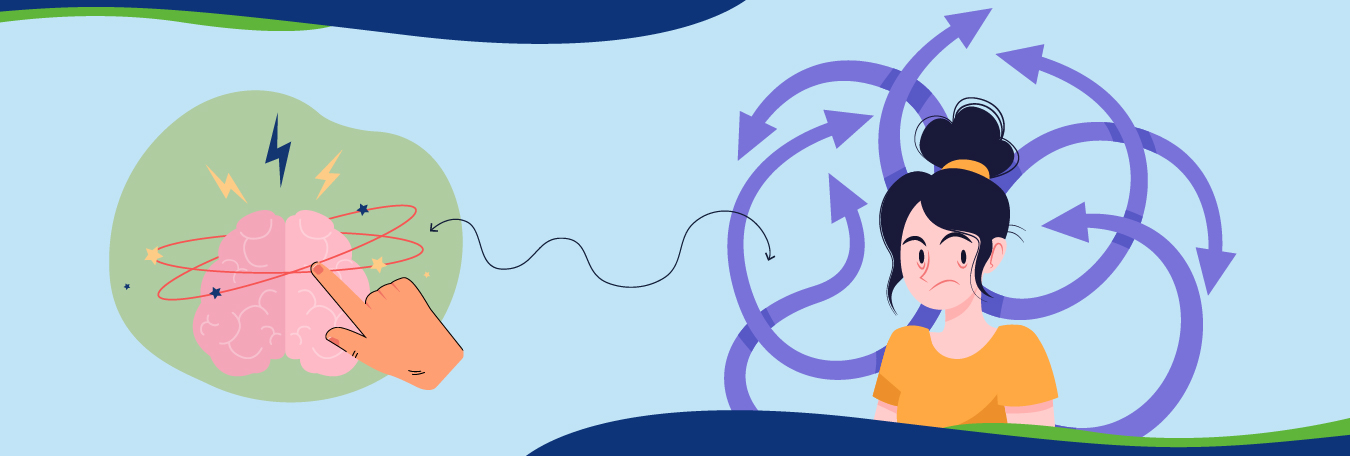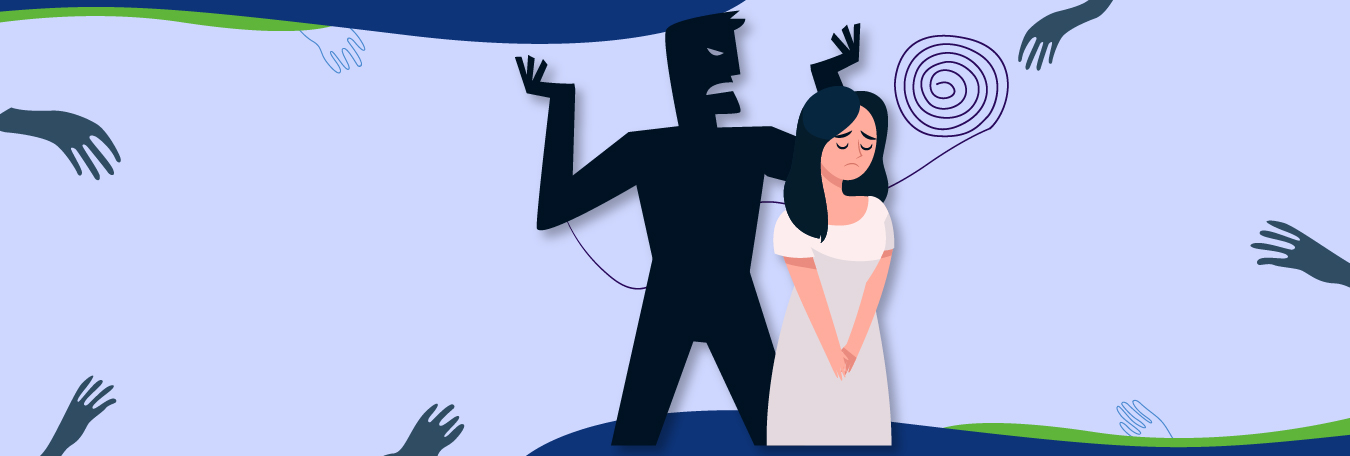If you are wondering what causes OCD in the brain neurobiology, then let us tell you that from the get-go the answer is not simple. While the exact cause cannot be pinpointed, studies suggest that differences in the genes and brain play a large role in the presence of OCD. Let’s explain to you how:
What is OCD?
OCD, the obsessive-compulsive disorder, is a mental condition that is characterized by behavior where obsessive actions are followed by excessive compulsions. These obsessions tend to be related to fear or the absence of solutions against it. For example, an individual with OCD might be preoccupied with the fear that he or she might end up hurting their child, either deliberately or by accident. And they “think” they can resolve these obsessions by typically participating in actions that are repetitive and habitual in nature. One example can be putting everything in a symmetrical order until the obsession is resolved or everything is in symmetry.
Learn More: OCD And Depression: Understanding The Connection
Common Obsessions
- Fear of killing your own child, whether accidentally or deliberately
- Fear of contamination
- Excessive worry about an infection
- Intrusive thoughts about sex, violence, or religion
- Symmetry
- Anxiety of Mistakes
Common Compulsions
- Double checks e.g. Rechecking gas if gas is on, on oven
- Repeating behavior, for example, closing and opening doors
- Excessive cleaning and washing
- Replaying past events and conversations in mind
Is OCD a Brain Disorder?
Research suggests that there tend to be problems in the communication channels of the brain of a person who is suffering from OCD. These can be the parts that are found in the frontal lobe and in the deep crevices of the brain. A chemical messenger called Serotonin is prevalent in these parts of the brain but runs low in people who suffer from OCD. With what has been just described, will you say to yourself, “Is OCD a Brain Disorder,” then the simple answer is yes, it is indeed a brain disorder?
Is OCD Genetic?
Genes play a major role in the prevalence of OCD in a family. While the actual causes remain unknown, there are certain triggers that can kick off symptoms in people who are most likely to have it. These triggers can range from but are not limited it:
- A major event (can be positive or negative)
- Bereavement
- Trauma
- Abuse
- Pre Existing Mental Disorder
If it runs in your family, chances are that you’ll likely have it but have no idea when. While there is no cure, prevention of triggers can be a long shot but save you a trip to the hospital or a mental health clinic.
Read More: A Brief Guide to different types of OCD
Risk Factors of OCD
To get a clear picture of the causes of OCD in the brain’s neurobiology, understanding the risk factors can be extremely beneficial and perhaps can provide an answer to the question, “What causes OCD in the Brain’s neurobiology?”.
We should keep in mind that OCD starts in early childhood or in the young adult years. Most people, if they do, develop OCD by the age of 25. Experts believe that your concurrent personality traits such as excessive cleaning or perfectionism can contribute to OCD’s onset. Your psychology, the environment that surrounds you, your family history, and the internal workings of your body, all play a role in the diagnosis of OCD or one can say are the answers to what causes OCD in the brain’s neurobiology.
How is OCD Diagnosed If the Causes of OCD in the Brain Are Unknown?
There are no tests or screening processes to see if someone is suffering from OCD. Typically, mental health experts assess the person who is suspected of having OCD and observe their behavior during the initial consultation to get an idea of what’s happening with them regarding their obsessions and compulsions. It is an interview of sorts.

This diagnostic interview result is then compared with specific criteria, usually with the Diagnostic and Statistical Manual of Mental Disorders. Through the comparison, the mental health expert is then responsible for diagnosis if the patient is a person who has a brain with OCD.
Many people who have OCD, are also generally diagnosed with other mental health issues, for example:
- Panic Disorder
- Generalized Anxiety Disorder
- Specific Phobias
- Eating Disorders like Anorexia Nervosa
- ADHD
- Depression
Read More: Is OCD Genetic? The Role Of Genes In OCD Manifestation
Can It Be Treated Without Ever Knowing The Actual Causes?
Treatment and causes of OCD in the brain’s neurobiology, are not mutually exclusive. One can happen without the other. While the causes cannot be straightforwardly pinpointed, treatment is always possible. There are certain ways that can be done:
Psychotherapies:
Also called “Talk Therapy”, mental experts use these to uncover the negative thought processes that might be guiding or governing the negative or problematic behavior. They try to find conflict resolutions for this kind of behavior in different ways, for example, in Cognitive Behavioral Therapy, a type of psychotherapy, therapists try to find the root cause of problematic behavior by allowing the patient (in this case someone suffering from OCD) to come into terms with their problems.
Medication:
Certain medications like antidepressants like Selective Serotonin Reuptake Inhibitors (SSRIs) can be used for treating the symptoms of OCD instead of wallowing in “What Causes OCD in the Brain.” Therapy along with certain lifestyle changes can also be used with medication for the optimal outcome.
Lifestyle changes:
Making changes in your everyday life can help bring relief from the obsessions and compulsions associated with OCD. These changes include but are not limited to:
- Exercising or any high-intensity workout
- Journaling
- Meditation
- Getting a hobby
- Reading books
Read More: Overcoming Harm OCD: Signs, Treatment and Recovery
Summary
While one cannot properly answer what causes OCD in the brain’s neurobiology, we do know that there are certain risk factors and triggers that can bring about the onset of OCD in a person. Keeping that in mind, prevention can be done and treatment can be sought. Inland Empire Behavioral Group’s experts are well-versed in handling OCD cases. If you or your loved one is suffering from OCD, then please don’t forget to book an appointment with us.




